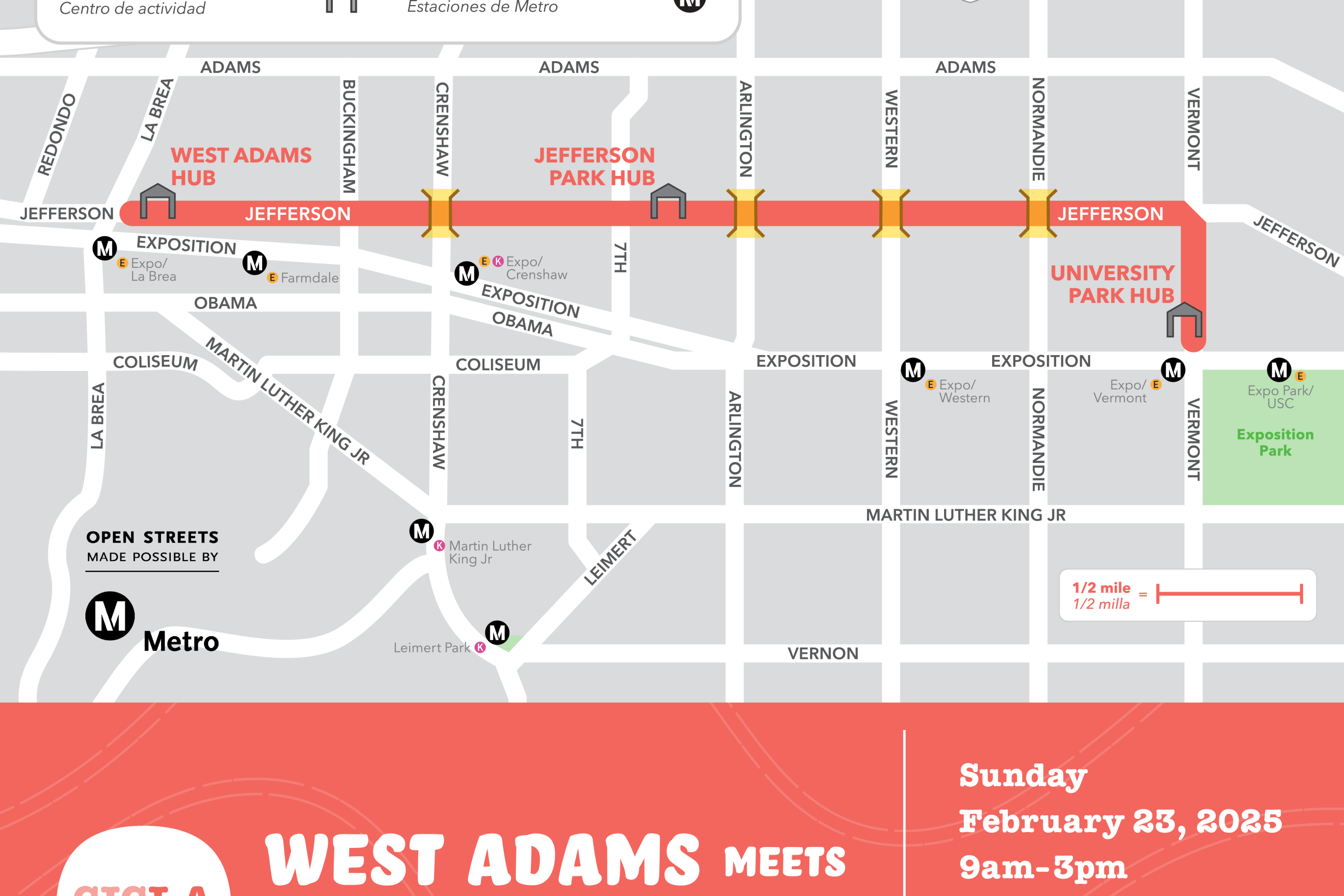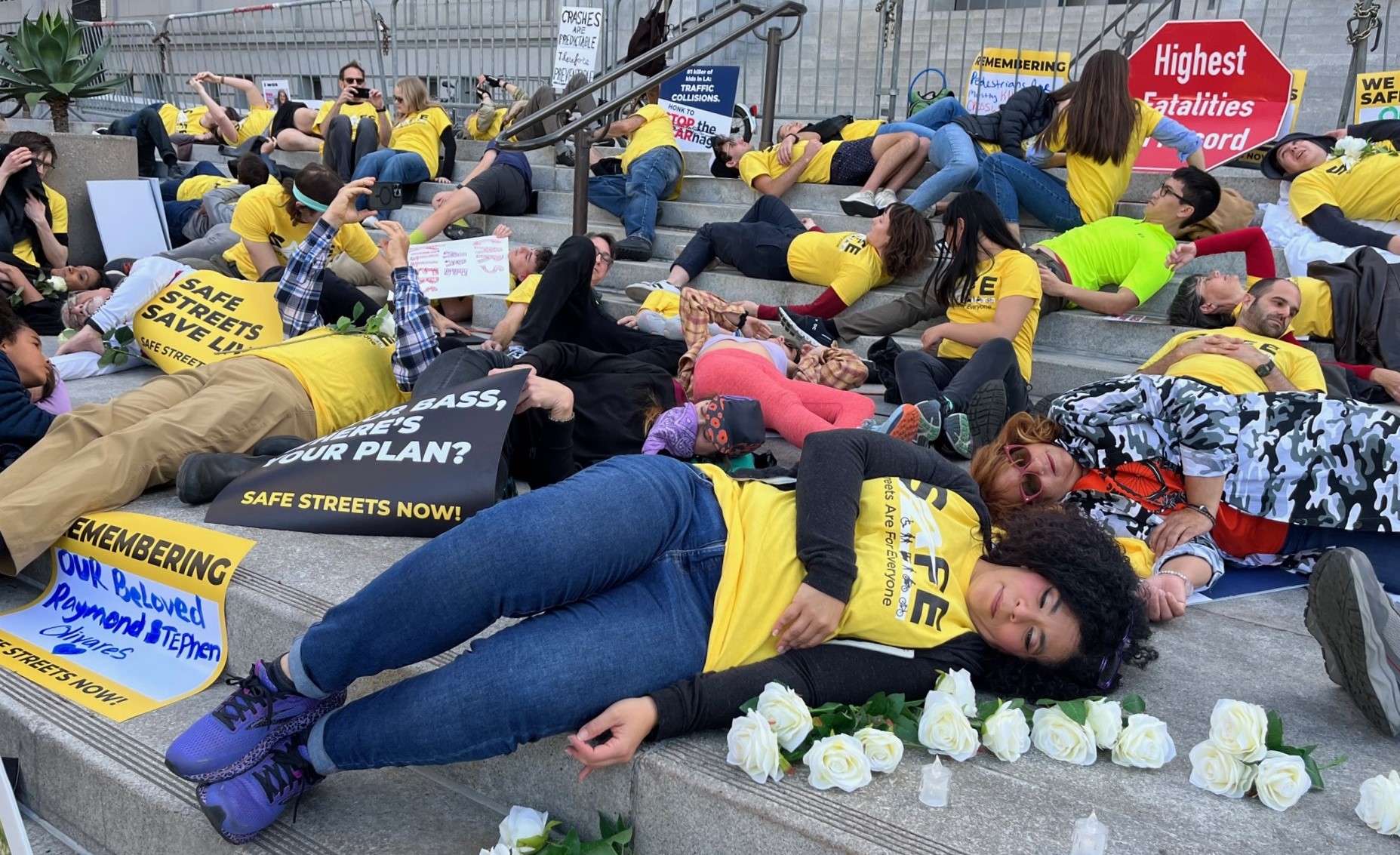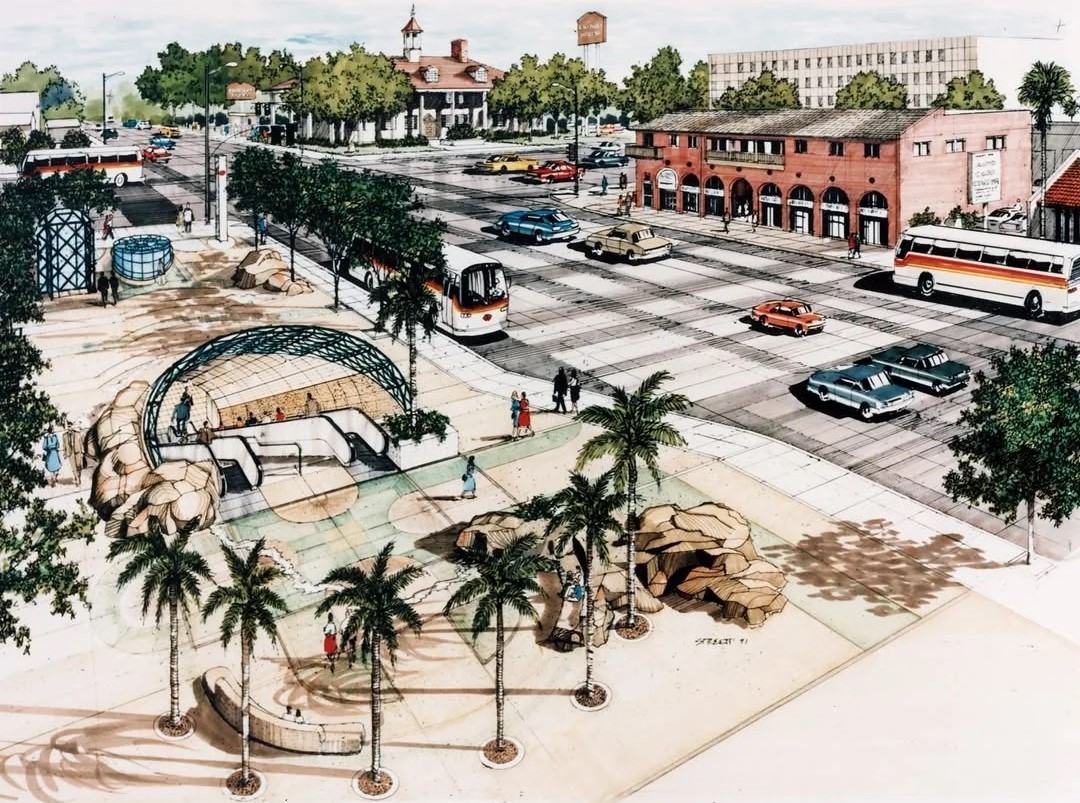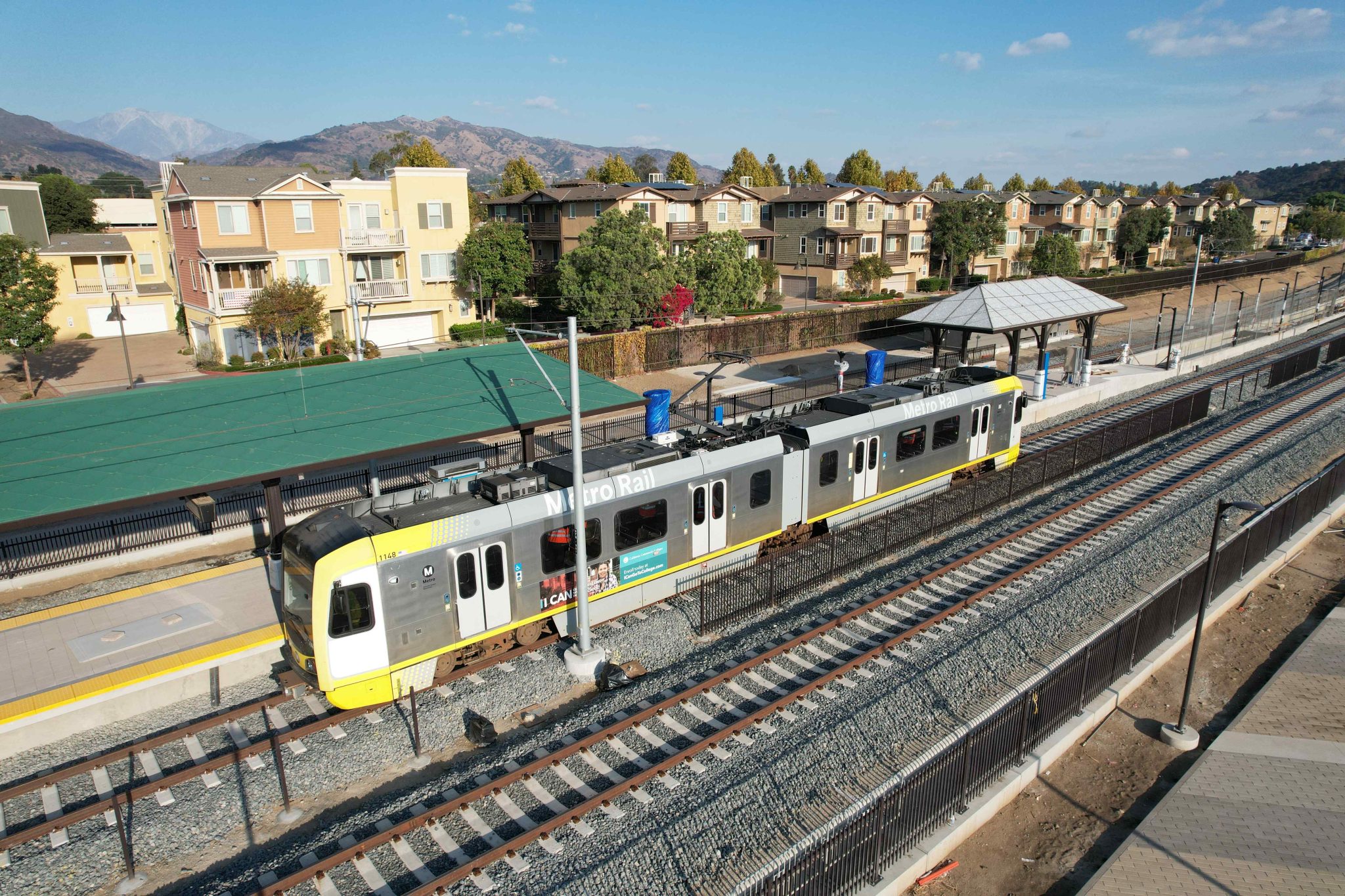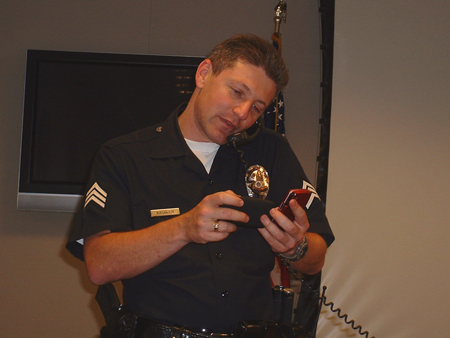
Late last month, I asked you to submit questions for Los Angeles Police Department Sargent David Krumer, the officer who has been the point person for bicycle issues for over a year. Many of you responded with solid questions, and Krumer was good enough to respond to each of them.
Want to know how to report scofflaws on the River Path? Do you crave information on the LAPD training program for bike incidents? And what the heck does Krumer do all day when not answering Streetsblog questions? The answers to these questions and more can be found after the jump.
Joe: Why does the LAPD advertise the exact time and place of DUI checkpoints? I can see why you would want to publish that they are happening, for the deterrent effect. But when you publish details like, “From 7 p.m. Friday until 3 a.m. Saturday, officers
will be monitoring drivers for signs of intoxication on Topanga Canyon Boulevard between Devonshire Street and Chatsworth Street.” (http://www.dailynews.com/breakingnews/ci_18138131), won’t drunks just find a different route home?
Sgt. Krumer: Case law as embodied in Ingersoll v. Palmer requires law enforcement conducting a lawful sobriety checkpoint to provide advance notice of the roadblock to the public, although they are not required to disclose its specific location.
"Advance publicity is important to the maintenance of a constitutionally permissible sobriety checkpoint. Publicity both reduces the intrusiveness of the stop and increases the deterrent effect of the roadblock......Publicity also serves to establish the legitimacy of sobriety checkpoints in the minds of motorists."
In addition to publicizing the DUI checkpoint, law enforcement is required to provide sufficient advanced warning to a motorist that is approaching a checkpoint. Basically a motorist can always avoid a checkpoint by making a U-turn when they see the checkpoint up ahead. We have no authority to go after them for opting out of the checkpoint. So even if we did not disclose the exact location of the checkpoint, the motorist can still avoid it.
Mihai: How many hours a week does Sgt Krumer put in to Cyclist Task Force stuff? If he ever feels swamped with work, how many more officers does he wish he had on board the Task Force?
Sgt. Krumer: The number of hours I spend on bicycle related issues varies depending on the workload for that week. I am assisted by Officer Jeff Kievit. If I had to estimate how much time is spent I would say that on average we spend 5 hours per week on research, reviewing training and policy, responding to emails and addressing general concerns of cyclists. If you include meetings then perhaps it will average another 3 hours per week. As of right now I have sufficient support....but as more cyclists become aware that LAPD has a point of contact for their issues my workload may justify additional assistance.
River: Slightly off topic, but who should I call when I see youths congregating on the L.A. river bike path (between Figueroa and Fletcher) openly consuming malt liquor and marijuana in the middle of the day? I ride there frequently during the week, and see these kids almost every time.
Sgt. Krumer: Law enforcement responsibility along the L.A. River bike path falls within the jurisdiction of the Office of Public Safety, General Services Police. "General Services Police Officers are dedicated exclusively to patrolling all of the City’s 400 parks..." Their 24 hour dispatch number is 213-978-4670.
Anonymous: Can the LAPD do anything about residents who routinely block the bike lane (usually about 2 days/week) with their garbage cans in violation of CVC 21211? It’s clearly against the law, creates a pretty serious hazard, and is fairly defeating of the modest bits of bike infrastructure that we do have. Where can I report violations (either within the LAPD or other city departments)? Can the residents be ticketed?
Sgt. Krumer: This has been the topic of much discussion. The Los Angeles Bureau of Sanitation is responsible for the trash bins. Trash bins are not tied to a specific residence and even if they were there is no way to show that the resident is actually the one who placed the bins into the bike lane...a citation can not be issued. The penalty for misusing the trash bins would be their removal...however the resident can simply call and have new bins brought to replace the ones taken. Realistically there is no way to address the problem and compel compliance.
On those days that the bike lane is obstructed by trash bins the cyclist has the right to use a regular lane of traffic. Vehicle Code section 21208(a)(3) states that a cyclist is not required to stay in the bike lane when reasonably necessary "...to avoid debris or other hazardous conditions."
Eric: As I understand it, the first training video only touched on lane position because you felt it was a complicated enough topic to warrant its own. Any idea when that might be available? Those of us that work in other jurisdictions need an authoritative source that shows all the circumstances under which a bicyclist may control the right lane–i.e. most of the time in urban areas.
Sgt. Krumer: The training module was submitted for review to our Training Coordination Section in late May. After their review it will be forwarded to Training Division for production. Production is dependant on staffing and workload so I do not have an estimate as to when it would be completed as the City's budget issues impact every aspect of the Department. I am hopeful that the module will be ready prior to the holiday season...but can not make any guarantees.
Anonymous: How’s the officer re-training going? How many officers in the force have gone through the module and when do you hope to be finished?
Sgt. Krumer: The LAPD is transitioning into a new training management program and as of this Q & A session it can not be queried to answer your question. When I find out I will advise LA Streetsblog.
Steve: My question is, are there liaisons at each station that we can ask for when making complaints, or asking questions? While I know there are different training programs, but there inevitably will be the “rookie” or the one who has a poor understanding of laws, that should be able to learn things one way or another. It literally took me at least 3 different people before I got to the guy who said he’d follow up… Hopefully we won’t have to ask for you specifically each time? (For background on this question, click here.)
Sgt: Krumer: With regards to making a complaint. If you have a general question on how to make a complaint a supervisor may provide you with this phone number to our complaint hotline :1-800-339-6868. If you desire to make a complaint and want to make one immediately, any Department supervisor (rank sergeant or above) must take your complaint then and there. If you are told by a supervisor to come back at a later time or directed to go to some other location to make a complaint that is a violation of our policies.
With regards to general questions: A police officer is not an expert on every aspect of the law, policy, or enforcement practices. Every officer however should be able to direct you to someone who can answer your question in the event they can not...or in the alternative get back to you with an answer in a reasonable amount of time. Please feel free to contact me at 35128@lapd.lacity.org and we can discuss your particular question in further detail as I fear that I will not be able to do so in this particular forum.
Don: Hi David, according to Bikeside analysis of SWITRS data, 1 in 3 collisions in California are hit and runs. I would like to hear your opinion on what will cause or induce drivers to stop at the scene of a collision.
Sgt. Krumer: This is a difficult question. I believe Hit and Runs are the product of the chances of being caught and not the penalty associated with being caught. To decrease Hit and Runs we would need to decrease the possibility of getting away with it. For the average law abiding motorist the current penalty which provides for prison time of up to 4 years (for serious bodily injury) should be a sufficient deterrent. Even if you were to make this 10 year the average citizen would not be more deterred because 4 years is already horrifying enough to a person who has never been to jail. The average motorist runs not because the penalty is insufficient but because they think they will not get caught. A criminal who flees the scene of an accident would likewise not be deterred by a stiffer sentence because if consequences were a deterrent to them they would not be criminals in the first place.
So the question becomes how do you increase the likelihood of being caught. I do not know but in the future perhaps cars will be equipped with a "black box" type device that registers impacts. These impacts would be electronically sent to a central computer that stores the time, location, and coordinates of the impact as well as the driver at the time (via a biometric or password used to start the car). When a victim of hit and run reports the incident the perpetrator will not be able to avoid the responsibility and will also face criminal prosecution. The incentive to run is eliminated and there is actually now an incentive to stay.
I would argue that the only other way to reduce hit and runs is to eliminate the incentive to run...which would be to avoid responsibility (usually financial). If a person strikes another user of the roadway but knows there will be no financial repercussions they have no reason to flee. This alternative of course can not be put into practice.
Jessica: Who at LAPD can help use move the City of LA SRTS plan forward? Law enforcement is a critical partner in Safe Routes to School efforts everywhere – it’d be great to have LAPD be a big part of these strategies – esp as they’re developed.
Sgt. Krumer: I’d welcome the opp to learn more about how to involve the LAPD in Safe Route to School efforts – things are moving with the City and soon with the school district. LAPD plays a great role around morning arrival and departure at a handful of schools I know about – but is there a larger strategy?

